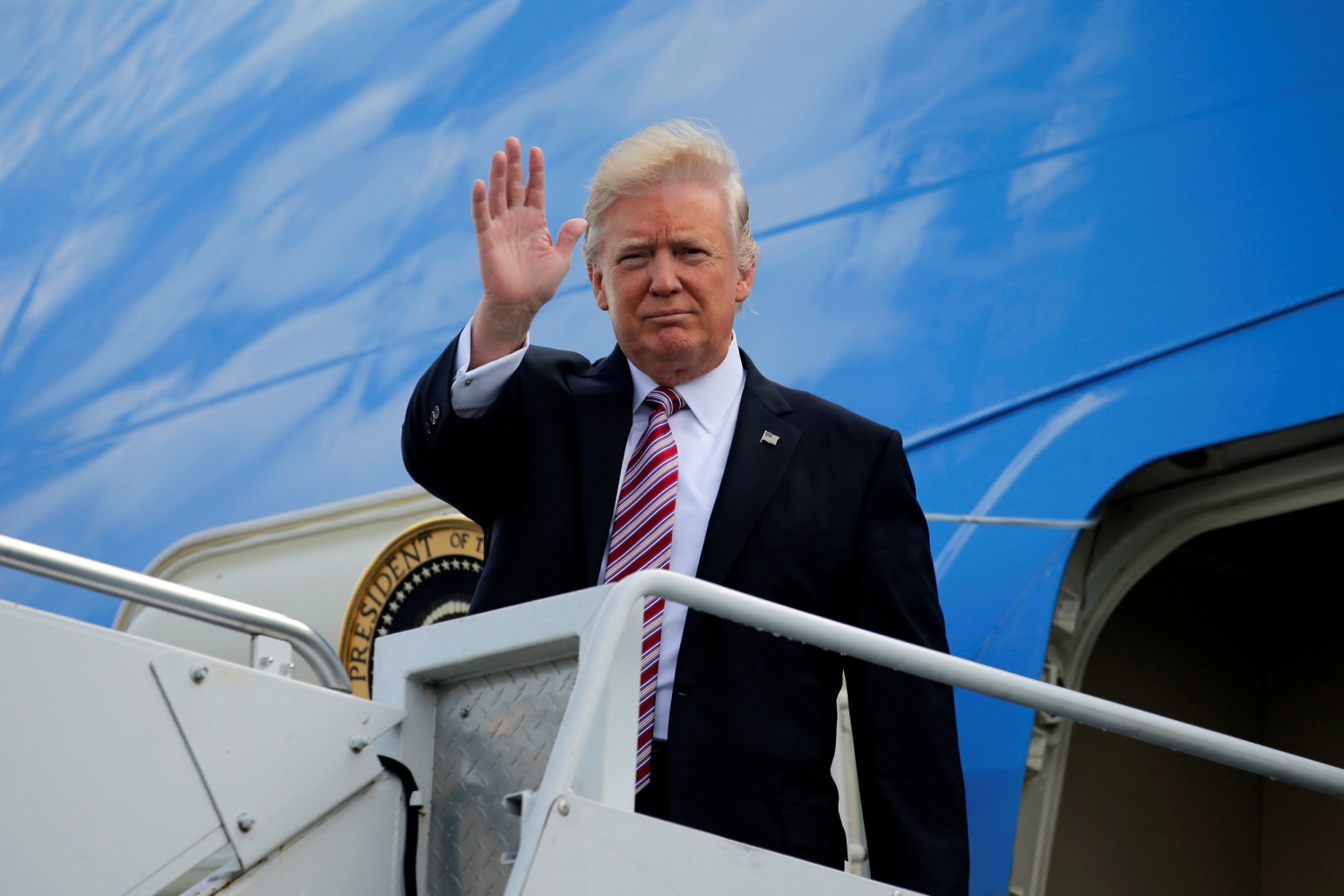WASHINGTON, Oct. 10 (Xinhua) -- U.S. President Donald Trump's trip to Asia next month is likely to be dominated by serious talks on rising tensions on the Korean Peninsula, U.S. experts said.
The trip comes amid growing animosity between Trump and Democratic People's Republic of Korea (DPRK) leader Kim Jong Un, a feud that has manifested itself in a war of words.
"While President Trump will have a number of objectives during his Asia trip, North Korea (DPRK) will be the predominant issue," Bruce Klingner, senior research fellow for Northeast Asia at the Heritage Foundation's Asian Studies Center, told Xinhua, using the name Americans often use for the DPRK.
Trump will confer and coordinate allied policy toward Pyongyang as well as reassure Japan and South Korea of the U.S. resolve to defend them, Klingner said.
The U.S. president has said in the past that a military option is one of the many options on the table in regard to the DPRK nuclear program. Addressing the United Nations General Assembly last month, he vowed to "totally destroy" the DPRK with "fire and fury like the world has never seen."
On Saturday, he tweeted "Presidents and their administrations have been talking to North Korea (DPRK) for 25 years, agreements made and massive amounts of money paid hasn't worked, agreements violated before the ink was dry, making fools of U.S. negotiators. Sorry, but only one thing will work!"
In less than two days, the president took to Twitter again early Monday morning with a message that read, "Our country has been unsuccessfully dealing with North Korea (DPRK) for 25 years, giving billions of dollars & getting nothing. Policy didn't work!"
On the opposite side of the sabre-rattling, Pyongyang's official state newspaper, Rodong Sinmun, put out a statement in August saying "The day the U.S. dares tease our nation with a nuclear rod and sanctions, the mainland U.S. will be catapulted into an unimaginable sea of fire." The DPRK also threatened the U.S. territory of Guam.
With tensions on the rise, Trump will head to Asia next month to meet with leaders in multiple countries, including China, Vietnam, the Republic of Korea (ROK), Japan and the Philippines. Klingner said that Seoul and Tokyo have been unnerved by the DPRK's growing military capabilities, particularly as it nears completion of the ability to target the American homeland with hydrogen bomb-equipped intercontinental ballistic missiles (ICBMs).
The ROK is increasingly questioning whether the United States would be "willing to sacrifice Los Angeles for Seoul," which has led to growing advocacy for the reintroduction of U.S. tactical nuclear weapons or an indigenous nuclear program, Klingner said.
Meanwhile, Trump is facing criticism from his own party for what many GOP lawmakers view as over-the-top rhetoric. Key Senator Bob Corker, head of the Senate Foreign Relations Committee, warned this week that Trump's words could lead to a dangerous situation, for example a World War III.
Experts said Corker is voicing concerns that many GOP leaders speak of in private, as patience may have run out with the tempestuous nature of the Trump presidency.
Though Corker and others still have faith in the foreign policy cabinet, they fear that an overly aggressive statement or tweet could lead to miscalculation, experts said.
